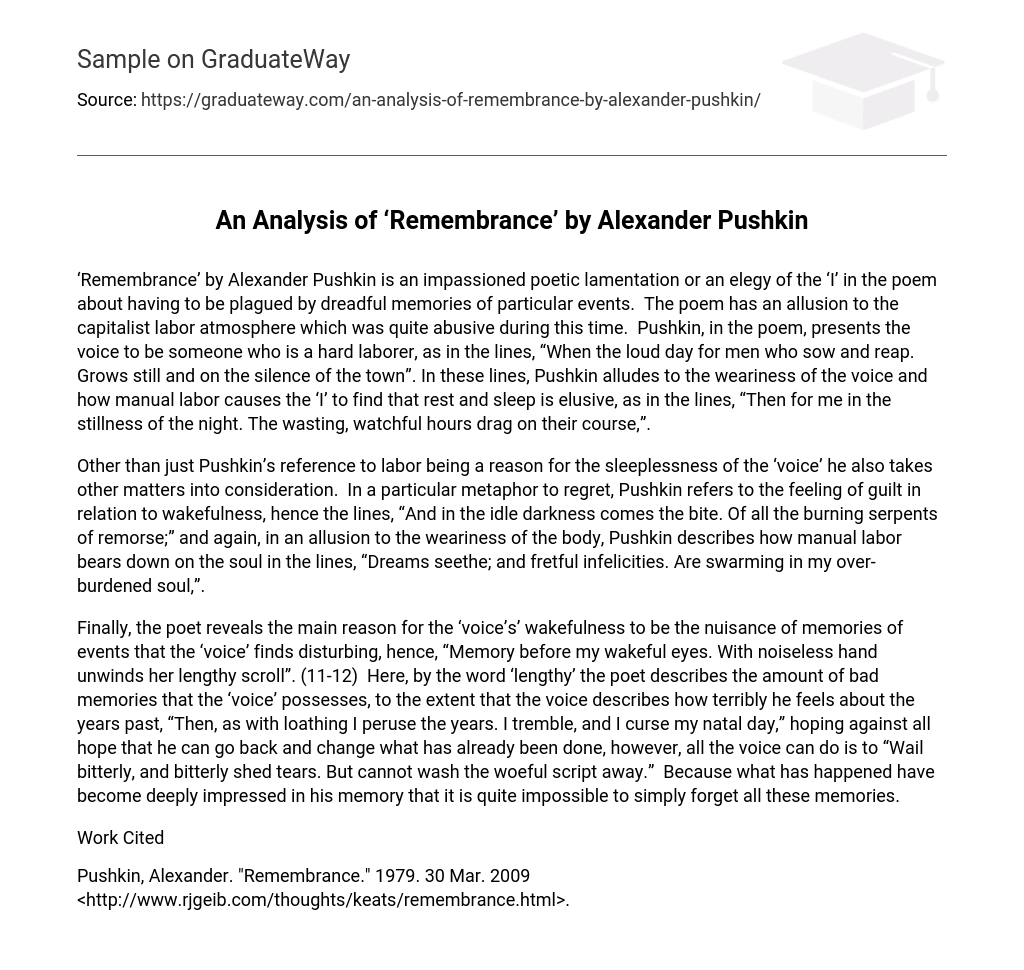‘Remembrance’ by Alexander Pushkin is an impassioned poetic lamentation or an elegy of the ‘I’ in the poem about having to be plagued by dreadful memories of particular events. The poem has an allusion to the capitalist labor atmosphere which was quite abusive during this time. Pushkin, in the poem, presents the voice to be someone who is a hard laborer, as in the lines, “When the loud day for men who sow and reap. Grows still and on the silence of the town”. In these lines, Pushkin alludes to the weariness of the voice and how manual labor causes the ‘I’ to find that rest and sleep is elusive, as in the lines, “Then for me in the stillness of the night. The wasting, watchful hours drag on their course,”.
Other than just Pushkin’s reference to labor being a reason for the sleeplessness of the ‘voice’ he also takes other matters into consideration. In a particular metaphor to regret, Pushkin refers to the feeling of guilt in relation to wakefulness, hence the lines, “And in the idle darkness comes the bite. Of all the burning serpents of remorse;” and again, in an allusion to the weariness of the body, Pushkin describes how manual labor bears down on the soul in the lines, “Dreams seethe; and fretful infelicities. Are swarming in my over-burdened soul,”.
Finally, the poet reveals the main reason for the ‘voice’s’ wakefulness to be the nuisance of memories of events that the ‘voice’ finds disturbing, hence, “Memory before my wakeful eyes. With noiseless hand unwinds her lengthy scroll”. (11-12) Here, by the word ‘lengthy’ the poet describes the amount of bad memories that the ‘voice’ possesses, to the extent that the voice describes how terribly he feels about the years past, “Then, as with loathing I peruse the years. I tremble, and I curse my natal day,” hoping against all hope that he can go back and change what has already been done, however, all the voice can do is to “Wail bitterly, and bitterly shed tears. But cannot wash the woeful script away.” Because what has happened have become deeply impressed in his memory that it is quite impossible to simply forget all these memories.
Work Cited
Pushkin, Alexander. “Remembrance.” 1979. 30 Mar. 2009 <http://www.rjgeib.com/thoughts/keats/remembrance.html>.





